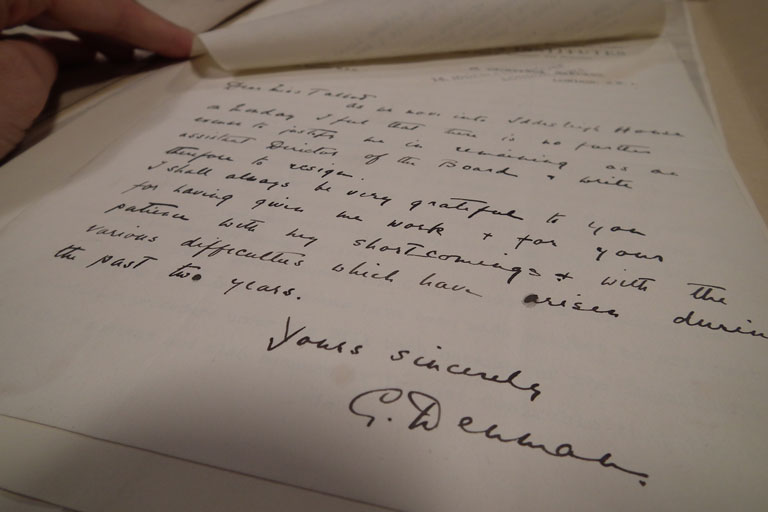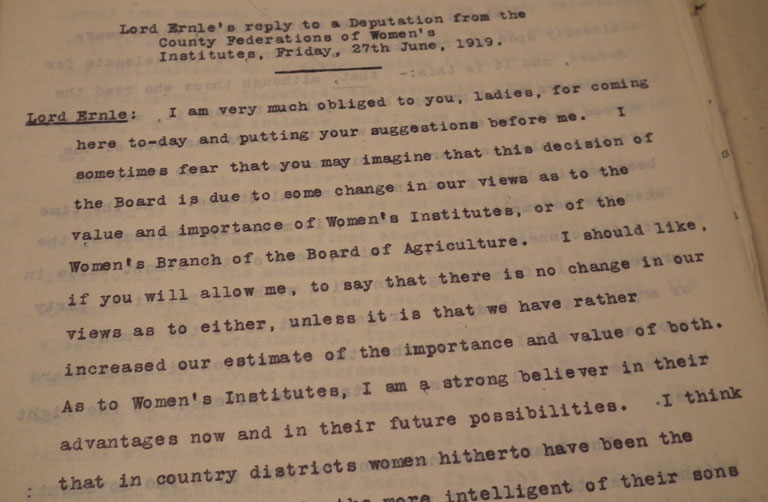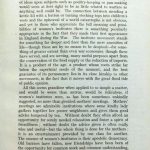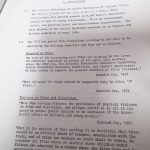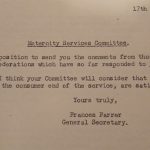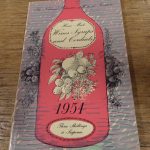This year marks the centenary of the Women’s Institute (WI). Formed to encourage country women to get involved in growing and preserving food, the women’s institute movement in Britain started in 1915, during the First World War. On 16 October 1917 the National Federation of Women’s Institutes was formed and Lady Denman was elected Chairman. Lady Denman had previously worked for the Women’s Branch at the Board of Agriculture.
While the National Federation of Women’s Institute and Denman archive is held by the Women’s Library, at the London School of Economics and Political Science Library, I was interested to see what records there are in The National Archives.
A quick keyword search on Discovery revealed hundreds of possible files, so I ordered a small selection to get a taster for what we have…
To start with, tucked in a box of files from the Board of Agriculture, I found a small note from Lady Denman, resigning her role as Assistant Director from the Women’s Branch. I don’t know about you, but I always think there is something special about seeing a handwritten message from the past.
In the same box is a file containing information about a deputation from the Women’s Institute, concerned that they should remain part of the Board of Agriculture. A copy of the speech given by Lord Ernle, the President of the Board of Agriculture and Fisheries provides excellent insight into why it was felt the Women’s Institute would thrive if separated.
Within a file described as ‘miscellaneous journal articles’ is a wonderful piece from 1918, written by Grace Hadow, the Vice Chairman for the WI. In this article it is clear that the WI was not solely about food production. It was also about comradery and bringing women together in wartime. Grace also says of the WI:
‘It is a product of the age, a product whose roots strike far below the superficial needs of the moment, and the best guarantee of its permanency lies in its close kinship to other movements, in the fact that it moves with the great flood tide of public opinion’.
I think 100 years later on, Grace has been proved right, don’t you?
From our records you can see the WI also provided evidence to a large number of committees including committees on maternity services, privacy, housing and obscenity and film censorship. The evidence contained within the obscenity and film censorship shows that, for the WI, this had been of concern for a number of years, as resolutions on similar matters had been passed at their annual meetings since 1947.
In another file there is a perfect copy of the Women’s Institute’s ‘Homemade wines syrups and cordials’!
- Women’s Institute article written by Grace Hadow (catalogue reference MAF 59/2)
- Evidence to the Committee on obscenity and film censorship (catalogue reference HO 265/7)
- Evidence to the Maternity Service Committee (catalogue reference MH 137/282)
- Manufacture of homemade wines (catalogue reference CUST 49/4308)
Finally, I opened up a small set of photos of Women’s Institutes in Malaya. At the time WIs were relatively new in Malaya, but
‘rural women of all ages have become keen members and though they may have to walk or cycle long distances to meet at the local community hall or the house of a member, their enthusiasm has proved to be far from a passing phase.’
The pictures were taken at a Women’s Institute near Tronoh in the state of Perak, which was only a few weeks old but already had about 100 members.
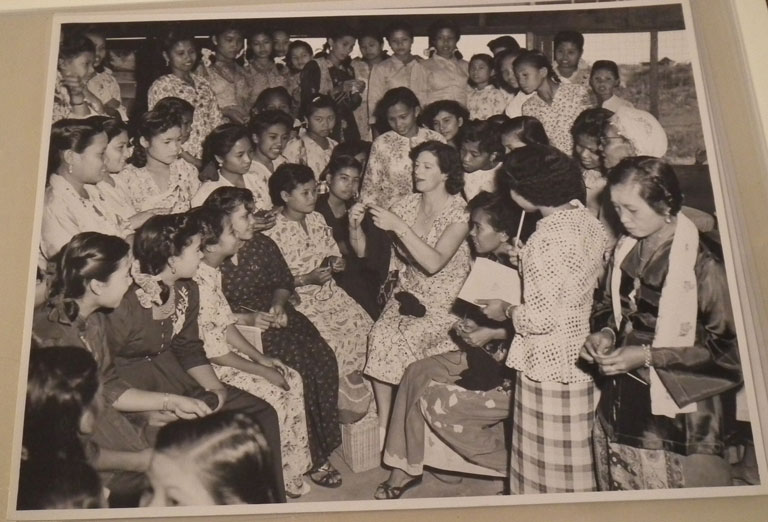
Knitting demonstration by Mrs J.N.M Lewis (President and Organiser of Kinta Territories Association WI) 1955, catalogue reference INF 10/200/3
I’d love to hear from anyone who has researched the WI in our collection, or maybe stumbled across a little gem in an unexpected file, as I know I’ve merely scratched the surface.
I also can’t wait for our very exciting event celebrating the WI centenary. It’s not all jam and Jerusalem will give us the opportunity to explore more records of the WI, and to get hands-on in a screen printing session led by Royal Academy printmaking fellow, Josie Molloy. In honour of the WI, we’ll also be enjoying a slice of cake. I hope to see you there!
Thanks to Vicky Iglikowski, our Diverse Histories Records specialist, for her help with this post!
